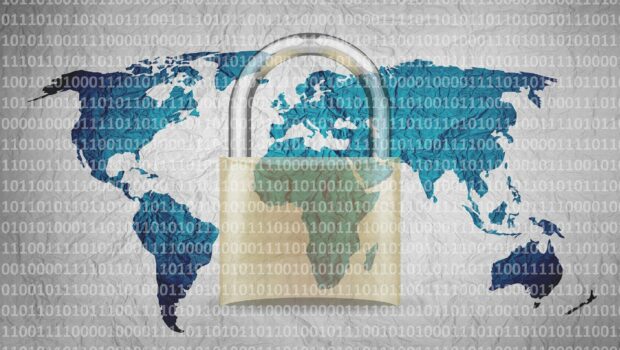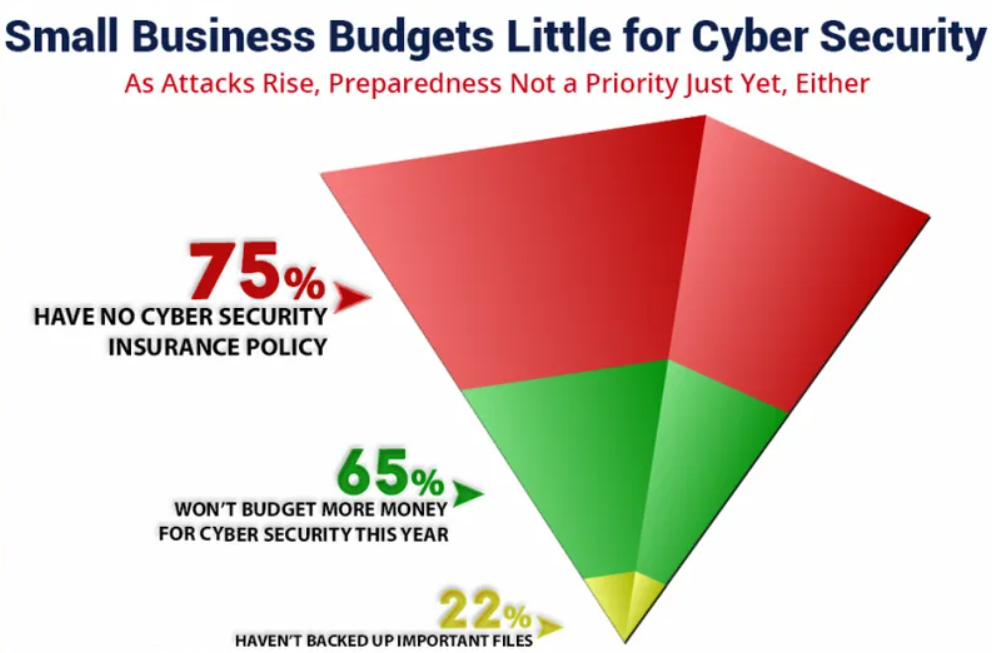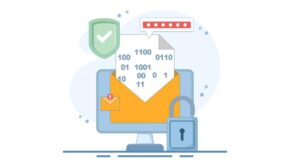Cybersecurity on a small business budget
As the number of smartphone users increases, businesses must have a more prominent online footprint. It helps them to reach out to a larger audience with their messages at a relatively lower cost. However, technological advancements have also seen an increase in the number of cyber attacks. Very often, there is news about data breaches at various businesses – both big and small.
Small businesses are susceptible to data breaches more due to their smaller cybersecurity budget. According to a study by Verizon, 43% of all cybersecurity breaches were targeted at small and medium businesses. It would be best to keep in mind that any data breach can lead to hefty penalties by government agencies and severe loss of customer trust. This article will discuss small business cybersecurity in greater detail.
Why budget for cybersecurity?
As there has been a significant increase in cyberattacks, there is an inherent need to imbibe stringent cybersecurity checks to protect and secure small businesses. Most websites store a vast database of client information, including their financial details. Therefore, any attack can prove to be disastrous for your business. A hacker who gets access to sensitive information can use it for their malicious ends.
Even if small businesses face budgetary issues, studies show that a data breach can be a massive blow in continuing operations. Hackers usually target small businesses as a gateway to the industry behemoths. Hence, apart from losing their reputation, they also face difficulty in ensuring financial stability. The need of the hour is to ensure adequate cybersecurity procedures to be in place to prevent any data breaches.
Types of cyber attacks that threaten businesses
Phishing attacks
The hackers take the identity of a trusted brand and make the user open an email or a message. The user is duped and made to click on a malicious link that allows the hacker to carry out the nefarious act.
Ransomware
The attacker encrypts the company data and forces the business to pay the amount to unlock the data. Small companies that do not have a backup of their data are more at risk from such attacks.
Denial of Service
The network resources of the business are overwhelmed, and genuine users cannot access the website. It is done by flooding the targeted network with too much traffic or sending information that causes it to crash.
Man-in-the-middle attack
This attack occurs when the hackers place themselves between the user and the services with which they are interacting. Therefore, you must buy and install an SSL certificate and move to an HTTPS platform to prevent this attack. An SSL cert ensures encryption of the in-transit information that transpires between the web browser and the client server. This keeps out scammers and hackers attempting MiTM attacks as the confidential information is in an encrypted format and can only be decrypted by the intended recipient. SSL certs come in various kinds and it is imperative to choose the right kind of SSL cert for your business. If you need to secure multiple domains, maintaining separate single-domain SSL certs for each domain can prove to be a headache. Therefore we suggest that you invest in a cheap multi-domain certificate or SAN certificate that allows you to add up to 250 SANs (varies from provider to provider).
Malware
Malware encompasses different malicious software like viruses, spyware, worms, etc. They are activated by clicking an attachment or a link that can install unsafe software on the system.
Why Must Small Businesses’ Cybersecurity be a Priority?
Your customers will no longer trust you if they learn about a data breach at your organization. You will be unable to show that you are serious about protecting customer data. Topping it off, there would be several lawsuits targeting you along with government intervention.
Larger companies would also stop working with you as they would start worrying about the extent to which their networks were exposed. They prefer to work with agile entities, and they wish they had a secure small business as their long-time partner.
Budget considerations for cybersecurity at small businesses
Small businesses face unique challenges, and one of them is the risk of a data breach. Studies show that small businesses would be spending around US$ 955,000 on average to restore operations after a data breach. The cost would be too high for their size and is also why they go bust shortly after a cyberattack. Moreover, many of them have no idea how to protect their networks.
As a small business, it is understandable that there must be a specific budget to ensure adequate cybersecurity processes are in place. However, you must understand the needs, and the vulnerable portions must be plugged in first. So, how much should small business cybersecurity spend be? Many factors will determine your budget, like your industry of operations, the company’s size, the sensitivity of collected data, compliance norms of the industry, etc.
Top priorities to secure small business
Secure your networks
You must securely manage the network by deploying adequate safeguards like installing an antivirus, firewall and anti-malware systems. The security configurations must be adequately defined for your organization. If you are using cloud systems, always do a proper due diligence of the data centers.
Train the employees
Your employees must be trained in the globally accepted IT best practices. In addition, there must be a robust email policy in place, and the employees must be prevented from accessing dangerous emails. You must also ensure there is a single-sign-on system that is accessible only through a strong password.
Backup the data
Your team must take a regular backup of all the data. It will help you to have a better turnaround time in the event of a mishap. The backup must be stored in a separate location or a safe cloud location as well.
Document the policies
Towards having a secure small business, you must have a documented cybersecurity policy. Always remember to update the policy periodically. The policy must also cover keeping the systems updated to prevent any vulnerabilities in earlier versions.
Conclusion
Cybersecurity needs specialized knowledge to ensure the safety of underlying critical information. Even small businesses are not safe from hackers. There must be adequate small business cybersecurity processes in place to prevent any data breach. With sufficient resources, hackers can be thwarted as well.

















